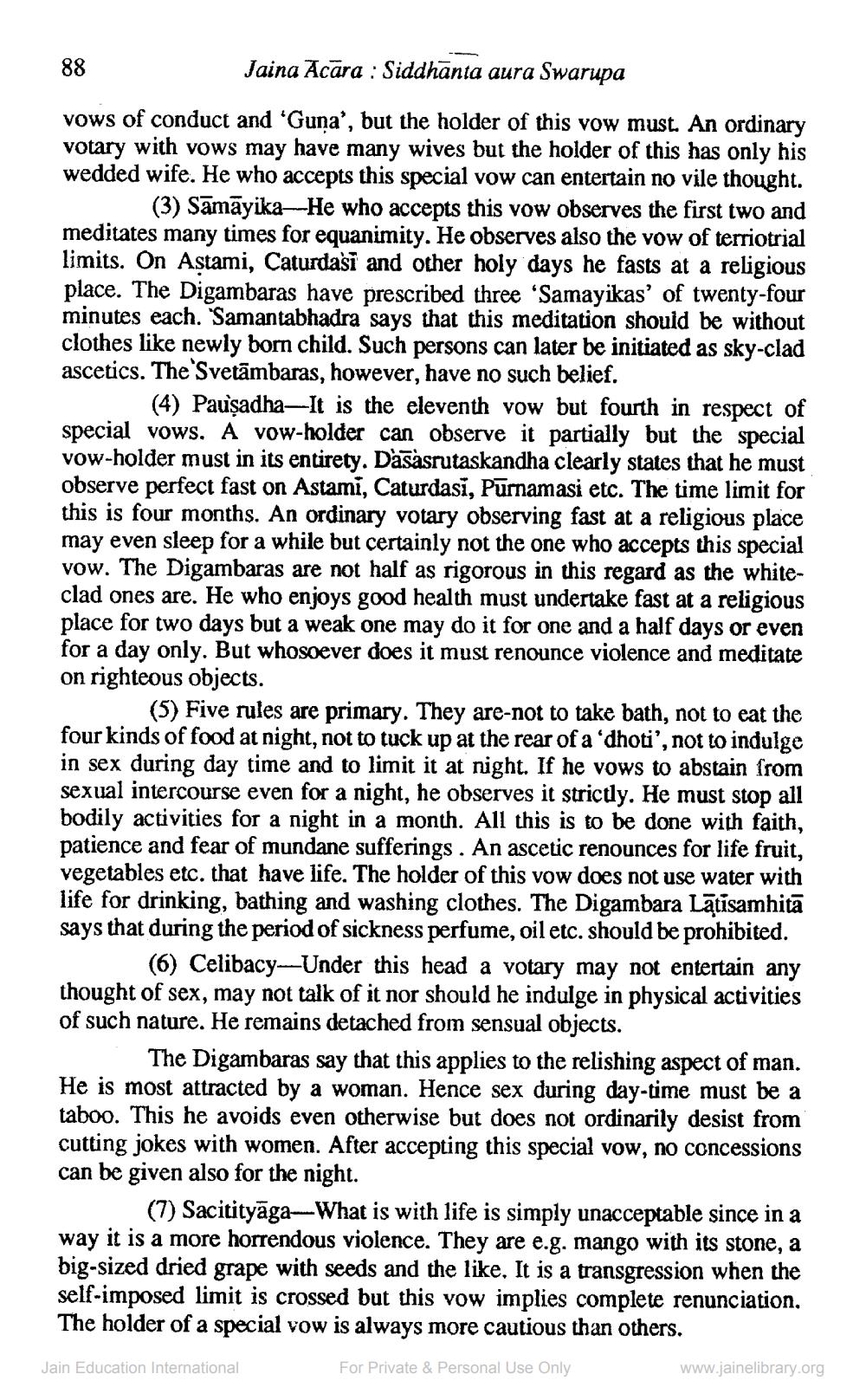________________
88
Jaina Acara: Siddhanta aura Swarupa
vows of conduct and 'Guna', but the holder of this vow must. An ordinary votary with vows may have many wives but the holder of this has only his wedded wife. He who accepts this special vow can entertain no vile thought. (3) Sāmāyika-He who accepts this vow observes the first two and meditates many times for equanimity. He observes also the vow of terriotrial limits. On Astami, Caturdasi and other holy days he fasts at a religious place. The Digambaras have prescribed three 'Samayikas' of twenty-four minutes each. Samantabhadra says that this meditation should be without clothes like newly born child. Such persons can later be initiated as sky-clad ascetics. The Svetambaras, however, have no such belief.
(4) Pauṣadha-It is the eleventh vow but fourth in respect of special vows. A vow-holder can observe it partially but the special vow-holder must in its entirety. Dasasrutaskandha clearly states that he must observe perfect fast on Astami, Caturdasi, Purnamasi etc. The time limit for this is four months. An ordinary votary observing fast at a religious place may even sleep for a while but certainly not the one who accepts this special vow. The Digambaras are not half as rigorous in this regard as the whiteclad ones are. He who enjoys good health must undertake fast at a religious place for two days but a weak one may do it for one and a half days or even for a day only. But whosoever does it must renounce violence and meditate on righteous objects.
(5) Five rules are primary. They are-not to take bath, not to eat the four kinds of food at night, not to tuck up at the rear of a 'dhoti', not to indulge in sex during day time and to limit it at night. If he vows to abstain from sexual intercourse even for a night, he observes it strictly. He must stop all bodily activities for a night in a month. All this is to be done with faith, patience and fear of mundane sufferings. An ascetic renounces for life fruit, vegetables etc. that have life. The holder of this vow does not use water with life for drinking, bathing and washing clothes. The Digambara Latisamhitā says that during the period of sickness perfume, oil etc. should be prohibited. (6) Celibacy-Under this head a votary may not entertain any thought of sex, may not talk of it nor should he indulge in physical activities of such nature. He remains detached from sensual objects.
The Digambaras say that this applies to the relishing aspect of man. He is most attracted by a woman. Hence sex during day-time must be a taboo. This he avoids even otherwise but does not ordinarily desist from cutting jokes with women. After accepting this special vow, no concessions can be given also for the night.
(7) Sacitityāga-What is with life is simply unacceptable since in a way it is a more horrendous violence. They are e.g. mango with its stone, a big-sized dried grape with seeds and the like. It is a transgression when the self-imposed limit is crossed but this vow implies complete renunciation. The holder of a special vow is always more cautious than others.
Jain Education International
For Private & Personal Use Only
www.jainelibrary.org




